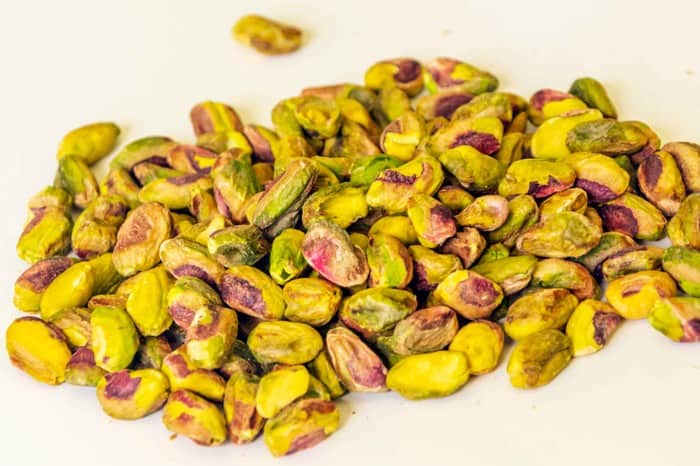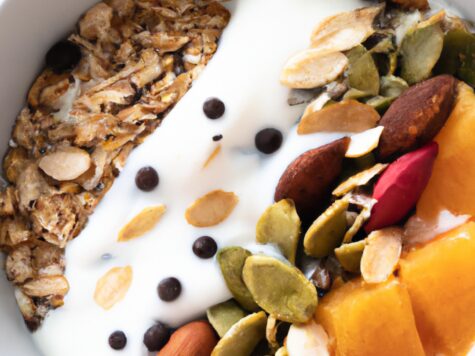Once you’ve researched whether a protein supplement is right for you, discover which protein bars are best. You might also enjoy our review of the best protein powders.
For over 200 buyer’s guides, visit our product review section to find more health-related reviews, including fitness trackers, kombucha and meal prep containers.
Best protein bars at a glance
- Best-tasting protein bar: Fulfil white chocolate caramel vitamin protein bar, £2.70
- Best protein bar with collagen: Vitl Glow dark chocolate and raspberry bar, £29.95
- Best chocolate protein bar: Foodspring extra chocolate protein bar, £25.99
- Best for tracking calories: Battle Bites high protein bar Jaffa Bake flavour, £2.50
- Best all-natural protein bar: Boost Ball coconut fudge cake, £15.99
- Best high-protein bar: MyProtein chocolate & cookie dough lean protein bar, £12.64
- Best high-calorie option to fuel exercise: 33 Fuel eroica natural protein bars, £24.99
- Best caramel protein bar: Grenade Carb Killa chocolate chip salted caramel protein bar, £34.20
- Best no-added-sugar option: Barebells white salty peanut protein bar, £22.99
Best protein bars 2023
Fulfil white chocolate caramel vitamin protein bar
Best-tasting protein bar
- Grams of protein per serving: 20g per 55g bar
- Calories per serving: 211 kcals
- Type of protein: whey and soya protein, collagen hydrolysate
- Type of sweetener: maltitol, erythritol, sucralose
- Fat per serving: 9g (4.4g sat fat)
- Carbohydrates per serving: 16.1g (2.1g sugar)
- Fibre per serving: 2.7g
This bar was a firm favourite with our group of tasters, many felt it was the best one we tried all day. They enjoyed the contrast of crunchy-chewy textures, nutty flavour and satisfyingly squidgy caramel centre. The white chocolate adds delicious sweetness and there’s absolutely no chalky aftertaste, which means this bar feels like a treat, not something you have to force down, like some protein products. Whether you’re fuelling up for a workout or beating the afternoon slump, this bar will do the trick.
Vitl Glow dark chocolate and raspberry protein bar
Best protein bar with collagen
- Grams of protein per serving: 20g per 55g bar
- Calories per serving: 143 kcals
- Type of protein: soy protein, collagen hydrolysate
- Type of sweetener: maltitol, sucralose
- Fat per serving: 5.5g (2.7g sat fat)
- Carbohydrates per serving: 12g (<0.5g sugar)
- Fibre per serving: 2.7g
We were pleasantly surprised by the delicious flavour of this fruity bar. Despite having vitamins and collagen called out on the packaging, you can’t taste either thanks to the rich dark chocolate, tangy raspberry filling and soft, spongy centre. Unlike so many other protein bars we tried, there’s nothing dry, dusty or waxy here – only a touch of indulgence. Plus, you get the added boost of collagen peptides to help your body recover.
Available from:
Vitl £29.95
Best chocolate protein bar
- Grams of protein per serving: 12g per 45g bar
- Calories per serving: 157 kcals
- Type of protein: whey and soya protein
- Type of sweetener: maltitol, sucralose
- Fat per serving: 6.8g (3.2g sat fat)
- Carbohydrates per serving: 14g (0.4g sugar)
- Fibre per serving: 5.4g
If you’re looking for a protein hit without too much sweetness, this could be the bar for you. Our tasters felt that while it still had a pleasant taste of vanilla and cashew nuts, and gave them a decent sugar hit, it wasn’t as sweet as some others we tried. They also enjoyed the fudgy centre, gooey caramel and crunchy rice balls – combined these gave the feel of a childhood favourite chocolate bar.
Available from:
Foodspring (£25.99 for 12)
Battle Bites high protein bar in Jaffa Bake flavour
Best for tracking calories
- Grams of protein per serving: 20g per bar, 10g per piece
- Calories per serving: 240kcals per bar, 120 kcals per piece
- Type of protein: whey and soy protein, bovine collagen
- Type of sweetener: isomalt, sucralose, oligofructose, maltitol
- Fat per serving: 8.5g per bar, 4.3g per piece
- Carbohydrates per serving: 19g per bar (2g sugar), 9.6g per piece (1g sugar)
- Fibre per serving: 7.5g per bar, 3.7g per piece
A refreshingly new flavour combination in the world of protein bars. The soft orange caramel and chocolate centre is encased in a layer of milk chocolate and studded with crispy biscuit grains on the outside – in other words it’s choc-orange heaven. This bar comes split in two smaller segments, which is great if you’re tracking your calories, nutrients or don’t feel you need the whole bar. The flavour isn’t too overpowering, which makes this a good pre or post-exercise snack.
More like this
Available from:
Protein Package (£2.29)
Amazon (£21.99 for 12)
Boost Ball coconut fudge cake
Best all-natural protein bar
- Grams of protein per serving: 9.5g per pack of three balls
- Calories per serving: 183 kcals
- Type of protein: whey protein and peanut butter
- Type of sweetener: Grape juice concentrate
- Fat per serving: 7.4g (5.4g sat fat)
- Carbohydrates per serving: 42g (14.8g sugar)
- Fibre per serving: 2.3g
These balls are a great option if you’re after a snack made with natural ingredients, but bear in mind that the included dates and grape juice means they’re higher in sugar than other protein bars.
That said, they’d be a quick and easy energy booster before intense exercise. They have a satisfying, chewy texture, just the right level of sweetness, and a lovely dusting of desiccated coconut on the outside of each ball.
Available from:
Boost Ball (£15.99 for 12)
Amazon (£15.14 for 12)
MyProtein lean protein chocolate & cookie dough bar
Best high-protein bar
- Grams of protein per serving: 18g per bar
- Calories per serving: 152 kcals
- Type of protein: soy protein isolate, whey protein concentrate, beef gelatine
- Type of sweetener: somalt, sucralose, maltitol, steviol glycosides
- Fat per serving: 4.6g (2.1g sat fat)
- Carbohydrates per serving: 11g (1.2g sugar)
- Fibre per serving: 5.7g
If packing in the protein is your main priority (without overloading on calories and sugar), these bars supply an impressive 18g each. They have a fluffy, chewy texture with contrasting crispy pieces throughout, and while they do contain artificial sweeteners – isomalt, sucralose, maltitol and steviol glycosides – they aren’t overly sweet and have a relatively low sugar content. Be aware that these bars do contain palm kernel oil.
Available from:
MyProtein (£12.64 for 12)
Amazon (£24.37 for 12)
33 Fuel eroica natural protein bar
Best high-calorie option to fuel exercise
- Grams of protein per serving: 20g per a double bar pack (100g)
- Calories per serving: 409 kcals
- Type of protein: almonds, egg whites and rice
- Type of sweetener: caramel
- Fat per serving: 17g (1.47g sat fat)
- Carbohydrates per serving: 43g (38g sugar)
- Fibre per serving: 8g
Double the size and much heavier than any other protein bars we tested, these are ideal as high-energy snacks for runners, cyclists, hikers and anyone exerting themselves. Each package contains two 50g bars, making them great to split up for pre- and post-training. Based on a traditional Italian recipe (allegedly used to fuel the Roman legions), these are pleasingly reminiscent of panforte. They use all-natural ingredients, including egg whites, rice protein and almonds as the protein source, and mixed candied peels and coconut sugar for sweetness. One note – although natural, these are on the high side for sugar content at 38g per 100g portion, as well as being higher in calories, fat and carbohydrates, so best used to fuel intense exercise rather than as an everyday snack.
Available from:
33 Fuel (£24.99 for 6 XXL bars)
Grenade Carb Killa chocolate chip salted caramel protein bar
Best-tasting protein bar
- Grams of protein per serving: 20g per bar
- Calories per serving: 226 kcals
- Type of protein: calcium caseinate, whey protein isolate, bovine collagen
- Type of sweetener: maltitol, sucralose
- Fat per serving: 9.5g (5.5g sat fat)
- Carbohydrates per serving: 20g (1.4g sugar)
- Fibre per serving: 2.5g
A genuinely great flavour – fans of salted caramel will love this. We enjoyed the soft nougat centre with a layer of salted caramel, topped with chocolate chips. Although these bars have the slight chewy texture common to protein bars, it’s not unpleasant, and the chocolate chips add a pleasing contrast in texture. Vegetarians, take note – these contain beef gelatine.
Available from:
Grenade (£34.20 for 12)
Amazon (£18.99 for 12)
Barebells white salty peanut protein bar
Best no-added-sugar option
- Grams of protein per serving: 20g per bar
- Calories per serving: 209 kcals
- Type of protein: milk protein and collagen peptides
- Type of sweetener: maltitol, sucralose
- Fat per serving: 9.3g (3.7g sat fat)
- Carbohydrates per serving: 14g (1.5g sugar)
- Fibre per serving: 3.7g
This is Barebells newest flavour launch, and it’s a winner in our book – a fluffy, slightly chewy bar, studded with caramel-dipped chunks of peanut, covered with a generous white chocolate coating. It’s a good choice if you don’t want any added sugar in your snack, although it does contain sweeteners maltitol and sucralose.
Available from:
Barebells (£22.99 for 12)
Amazon (£21.89 for 12)
Protein health advice
How to use protein supplements safely
Dietary supplements such as protein bars should be consumed as part of a healthy, balanced diet, and not used as a substitute for whole food.
Nutritionist Kerry Torrens explains, ‘Protein supplements, such as bars, are highly processed and lack the micronutrients and other beneficial nutrients of whole, natural food. We should all aim to achieve our protein requirements from a well-balanced diet, but for short-term use or in certain circumstances, protein supplementation may be considered.’
Although protein bars may have healthier credentials than a chocolate bar, it’s important to remember that they are a concentrated source of energy and can be high in sugar, carbohydrates and fats. Consider your individual health and fitness goals, your personal dietary requirements and your reason for including protein bars in your diet when deciding which product to buy and how often to eat them.
Discover how to eat a balanced diet and the best protein sources, including options for vegetarians and vegans.
Who could benefit from using a protein supplement?
If you’re regularly getting enough protein from your diet, adding a supplement might not make a noticeable difference to your health. However, those who are either unable to regularly eat enough protein due to decreased appetite or illness, or who have increased protein needs as a result of high-intensity exercise might benefit from taking a supplement.
Kerry explains, ‘One example, which is probably not an obvious one, is the elderly. This group often has a greater need for protein, but a lower appetite. Increasing protein intake in a form that is palatable and suits their lowered appetite may be effective in protecting against muscle loss. That said, in this group other aspects, such as kidney health and osteoporosis, need to be considered and monitored – it’s worth checking with a GP that protein supplements are safe and suitable for each individual.’
Who shouldn’t take protein supplements?
Children shouldn’t take protein supplements unless directed by a dietitian. The NHS advises that consuming too much protein in the long term is linked to an increased risk of osteoporosis, and may worsen existing kidney problems. Some people find protein bars difficult to digest – it’s best to include them gradually into your diet, and see how you get on. Although allergens should be stated on the label, anyone with allergies should be cautious about using a new supplement, as there is an obvious risk of cross-contamination in factories. Those who are pregnant, breastfeeding or being treated for existing medical conditions should consult their GP before starting new supplements.
Is it possible to take too much protein?
Yes. The Department of Health advises adults to avoid consuming more than twice the recommended daily intake of protein (55g for men and 45g for women). Always read the label of any protein supplement carefully, stick to the recommended serving size, and be mindful of other protein sources in your diet. If you’re concerned that you might be consuming too much protein, speak to your GP.
Buyer’s advice
How to choose a protein bar
Choosing a suitable protein bar will depend on your personal requirements and goals. For example, if you’re looking to gain weight or build muscle, you might want to consider a ‘mass-gainer’ product that is higher in calories and carbohydrates. Look for a product to fit your dietary requirements and double check allergen labelling on the packet.
When choosing a protein bar, make sure that you buy from a reputable company, ideally based in Europe, as those that are based outside of Europe may not pass the same safety standards as those within. If you’re in any doubt about the safety of a product, speak to your pharmacist or GP.
What we looked for in protein bars
Taste and texture: is the flavour pleasant? Is the texture palatable?
Type of protein: whey or plant-based? Concentrate, isolate or hydrolysate?
Nutrient profile: how much protein per serving? What about calories, fat, saturated fat, carbohydrates and sugars?
Type of sweetener: does it contain sugars, artificial sweeteners or neither?
Dietary requirements: vegetarian, vegan, gluten-free?
Value for money: how does it compare to others on a cost-per-bar basis?
Testing notes
All bars were taste tested on the same day, with notes made according to the testing criteria. We included 25 samples from a range of manufacturers with differing nutritional information, protein types and price points for this review.
Related content
The best protein powders
Best sources of protein
The best sources of protein for vegetarians
The best sources of protein for vegans
What to eat for a workout
Sports nutrition: what’s worth trying?
More health-focused reviews
The best sports water bottles
The best health gadgets
Best fitness trackers
The best fitness trackers for kids
The best meal prep containers
The best kombucha to buy
Do you buy protein bars? Leave a comment below…
This review was last updated in March 2023. If you have any questions, suggestions for future reviews or spot anything that has changed in price or availability, please get in touch at goodfoodwebsite@immediate.co.uk.
All health content on bbcgoodfood.com is provided for general information only, and should not be treated as a substitute for the medical advice of your own doctor or any other health care professional. If you have any concerns about your general health, you should contact your local health care provider. See our website terms and conditions for more information.





